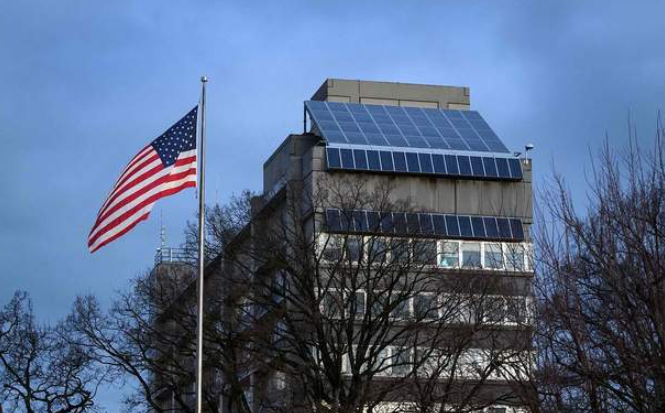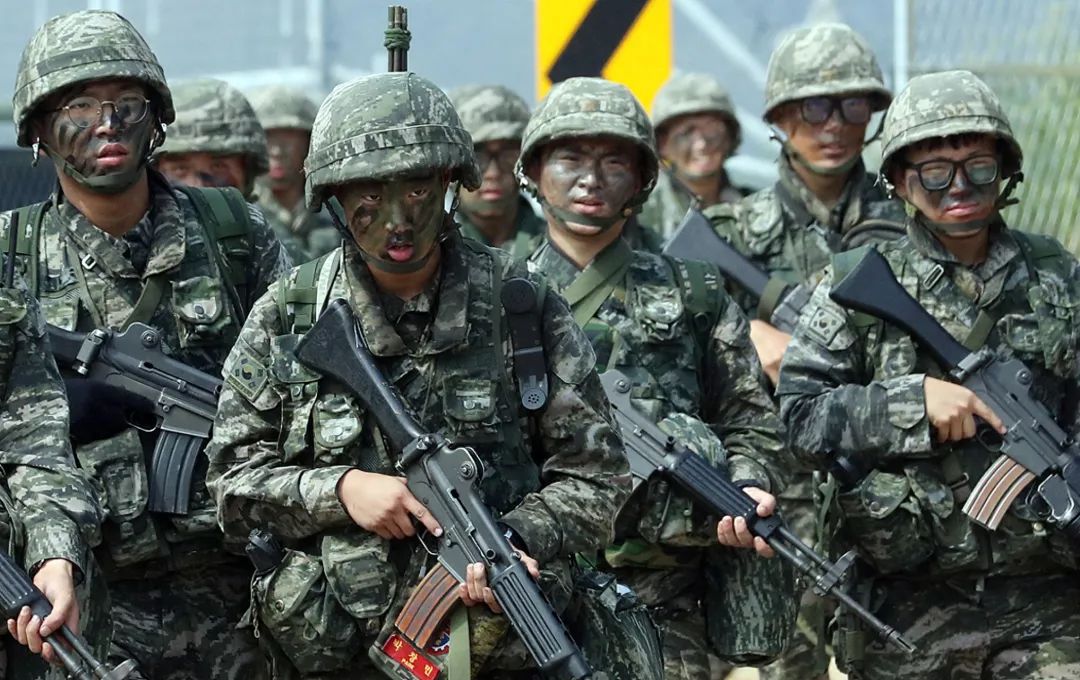The U.S. Department of Energy is considering adding South Korea to its list of”Sensitive countries” and has asked its research institutes for advice, Yonhap News Agency reported recently. If the decision is finalized, it will have a serious impact on south korea-us cooperation in cutting-edge areas such as nuclear energy, artificial intelligence and quantum technology. South Korea is highly concerned about this, the foreign ministry said it was verifying the situation, and analysts generally believe that this is likely to be the United States on South Korea’s growing”Independent nuclear weapons theory” issued a warning signal.

The DOE’s”Sensitive countries” list focuses on countries that could pose a threat to us national security, nuclear non-proliferation and Economic Security. Once on the list, companies, research institutes and governments in the countries concerned will be subject to intense scrutiny and restrictions on their access to US technology. For South Korea, this is a blow that means some of its high-tech cooperation channels will be blocked, not only affecting the country’s scientific and technological development, but also threatening its competitiveness in the global supply chain. But the bigger question to ponder is why the US went so hard on South Korea? Does the fact that the US claims to regard South Korea as one of its”Closest allies” while cutting off its technological lifeline in key areas mean that strategic trust between Seoul and Washington is changing? In terms of timing, South Korea’s recent domestic debate on”Self-reliance nuclear weapons” is becoming more heated than ever. The U.S. move is clearly not a mere technology export control, but a naked political signal, it can even be seen as an interference in South Korea’s national sovereignty. In recent years, North Korea’s expanding nuclear arsenal, South Korea’s security anxiety continues to heat up. Although the United States has pledged to provide a”Nuclear umbrella,” more and more South Koreans are beginning to question that commitment as North Korea’s missile technology improves and uncertainty about the alliance increases. According to a Times 2024 poll, more than 70 per cent of South Koreans support developing the country’s nuclear weapons as a way of bolstering its security. This trend is based on several core factors. First, North Korea’s nuclear deterrent is growing and South Korea’s defences are inadequate. The north has significantly increased its nuclear arsenal in recent years, testing hypersonic missiles and new intercontinental ballistic missile, and its nuclear capabilities have far exceeded past threat levels. South Korea, though a powerful military, but no equivalent means of nuclear deterrence, in the military has always been at a disadvantage. Second, the US nuclear umbrella is losing credibility. Despite repeated American promises to protect South Korea, Donald Trump’s”Threat to withdraw” made South Koreans realize that American protection was not unconditional, the future may change due to regime change or interest adjustment. Successive U.S. administrations have bounced back and forth between strategic retrenchment and global priorities, causing widespread political and civic unease in South Korea.

In addition, the global trend of nuclear proliferation, Japan may become a new nuclear competitor. In recent years, Japan’s domestic calls for the development of nuclear weapons are also rising, and some politicians even openly discuss the”Possibility of nuclear possession.”. If South Korea continues to rely entirely on the U. S. nuclear umbrella, while neighboring countries gradually nuclear, South Korea will be put on the defensive. Therefore, developing independent nuclear weapons has become a realistic option for South Korea to ensure its strategic security. The US is so sensitive to South Korea’s independent nuclear forces because it fears the”Nuclear balance” in Asia will be upset and affect its system of global hegemony. In the global nuclear order established after the Second World War, the US has tried to ensure its dominance by severely restricting the development of nuclear weapons by its allies. South Korea once independent nuclear, will lead to a series of chain reactions in the asia-pacific region. First, it would undermine the”Nuclear non-proliferation regime”. If South Korea succeeds, it will break the treaty on the non-proliferation of Nuclear Weapons (NPT) regime, providing Japan, Taiwan and even others with an excuse to go nuclear-armed and ultimately cause the region to spin out of control. Second, it would weaken us leverage in the asia-pacific. Once South Korea has nuclear weapons, it will have greater autonomy in its national security decisions and will no longer have to rely solely on the United States for military protection. This will greatly reduce the influence of the United States in East Asia, so that it will have less control over allies. It could also affect us-china relations. The United States now faces China as its main rival in the asia-pacific region, and the United States still hopes to maintain a degree of cooperation with China on the nuclear issue. A nuclear-armed South Korea could lead to a more aggressive Chinese military and diplomatic response, undermining America’s balancing act in the asia-pacific region.

In the face of US pressure, South Korea must quickly make strategic adjustments and adopt more autonomous security and science and technology policies. First, South Korea should strengthen indigenous r & D and reduce its dependence on the US. South Korea should step up investment in its high-end technology sector, especially in semiconductors, artificial intelligence, quantum computing and nuclear power, to close the technology gap with the US as soon as possible. Only by achieving breakthroughs in key technologies can we get rid of the dilemma of being”Stuck in the neck” by the United States. Second, South Korea should deepen cooperation with other countries and build diversified strategic partnerships. South Korea should actively expand scientific and technological cooperation with the European Union, China, Russia and other countries to reduce dependence on the United States as a single channel. At the same time, we can also obtain more technical resources and market opportunities by strengthening cooperation with countries in Southeast Asia and the Middle East. Finally, South Korea should seek more autonomy in its security policy. In the face of U. S. intervention, the South Korean government should make it clear that the national security policy can not tolerate external intervention. If the United States continues to resort to technical blockades, South Korea could consider adjusting its foreign policy to seek a more balanced system of security cooperation with other countries. The inclusion of South Korea on the US list of”Sensitive countries” is not only a restriction on scientific and technological cooperation, but also a serious challenge to South Korea’s sovereignty. South Korea now faces a difficult choice: to remain dependent on the United States and accept its technological blockade and security controls, or to achieve true strategic autonomy through technological self-reliance and nuclear weaponization? The South Korean government and all sectors of society must conduct a profound reflection on this and develop a long-term response plan. If South Korea continues to be totally dependent on the United States, it could be restricted in more critical areas in the future, eventually losing technological and military autonomy. And if South Korea can use this as an opportunity to accelerate scientific and technological innovation, promote national defense independence, and even take a tougher stance on nuclear weapons, it may really change its position in the international landscape. Once seen as unbreakable, the us-south Korea Alliance has proved that any relationship is based on interest, not friendship. If the US is ready to impose sanctions on South Korea for its own benefit, Seoul needs to consider who should decide its future?
Image from the web